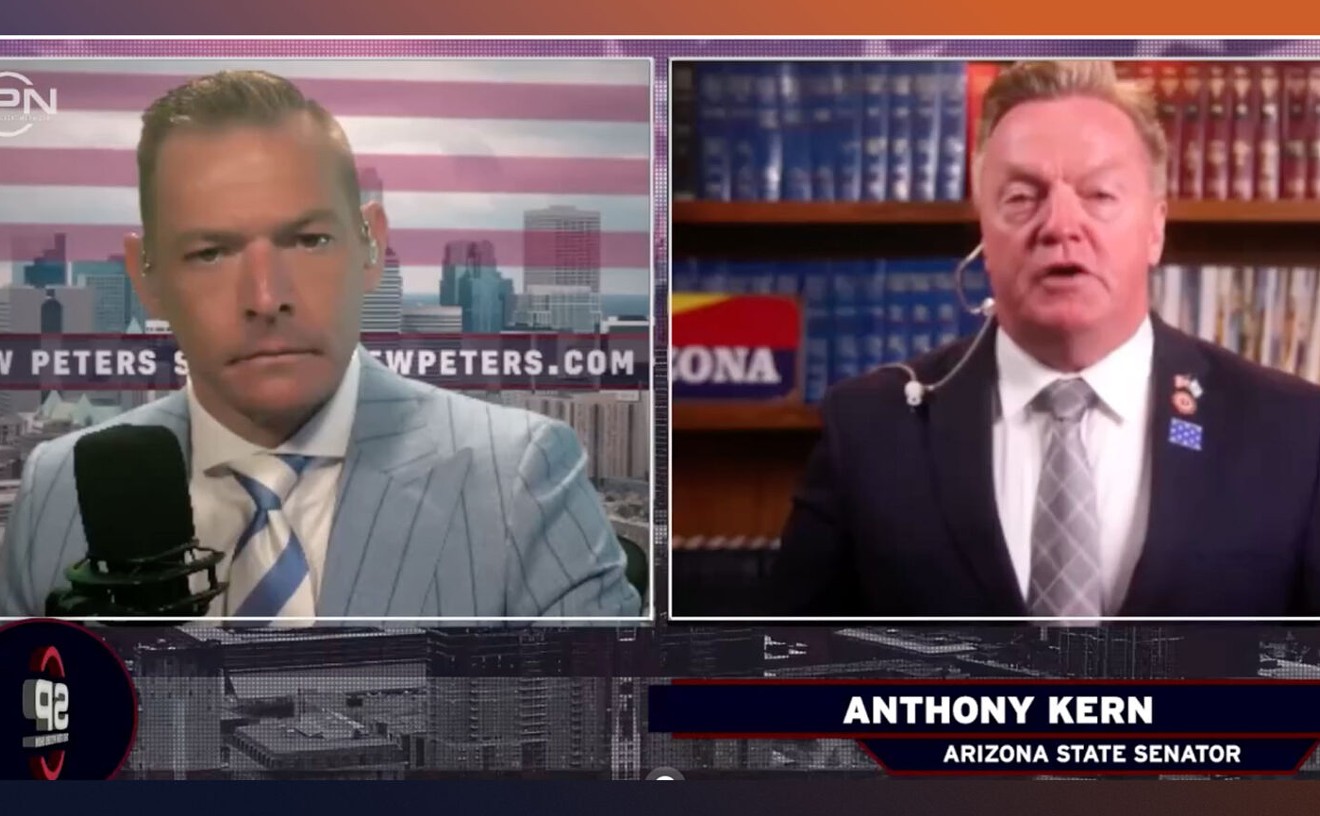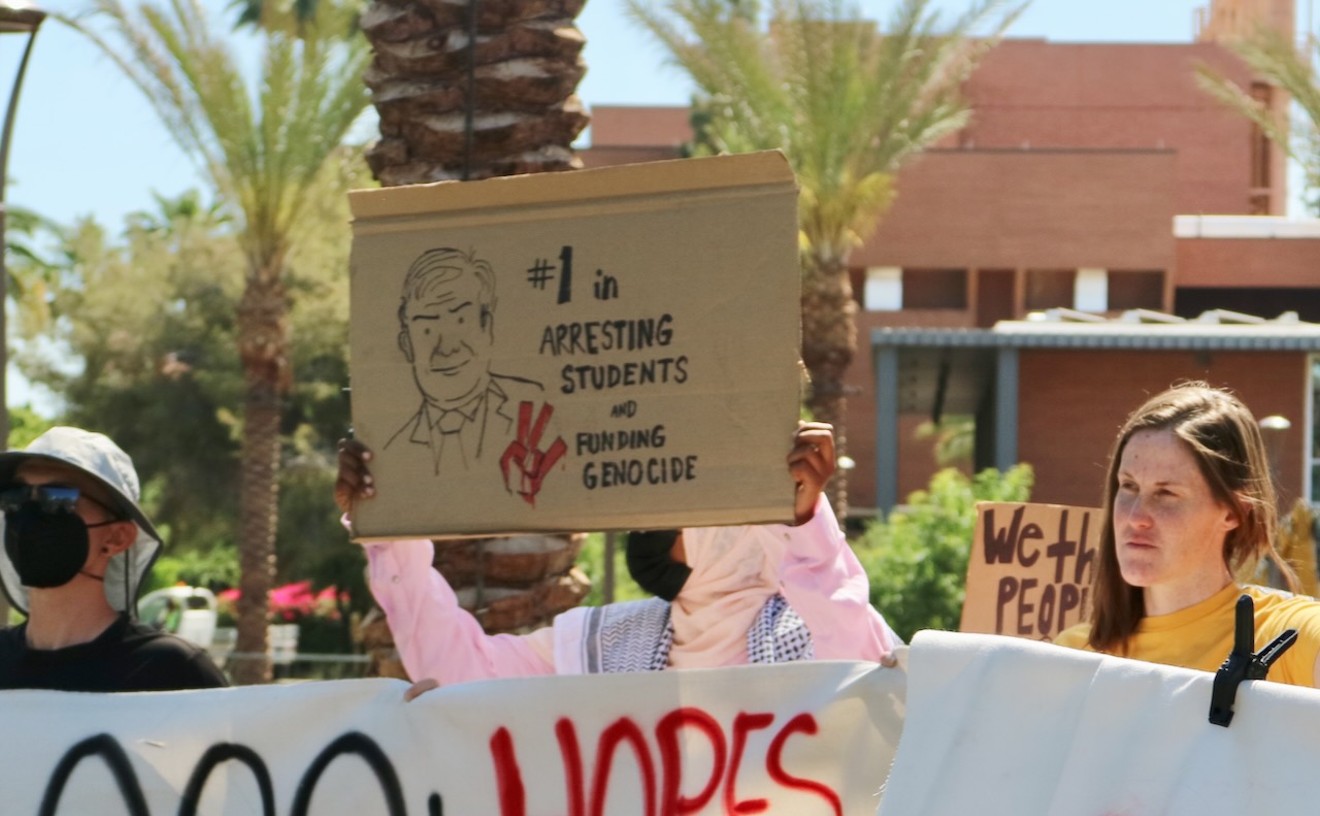State land officials will continue defending a disputed land-giveaway law despite being slam-dunked by environmentalists in the state Court of Appeals. The decision to fight the appellate court's ruling was made last Thursday by state Land Commissioner Jean Hassell, and it was done with the blessing of Governor Fife Symington, says Glen Collins, deputy state land commissioner.
But if Hassell had needed the blessing of the taxpayers instead, the outcome might have been different--especially considering the track record of Hassell's opponent in the case, the Arizona Center for Law in the Public Interest.
In the past decade, more than half a million dollars of taxpayers' money has been spent by city and state officials in futile defense of environmental policies under attack by the Center and its enfant terrible of environmental law, David Baron. The Center's lawsuits have targeted everything from officialdom's inaction on dirty air and water to the giveaway of state mineral royalties earmarked for Arizona schools.
So far, the bureaucrats are batting about zero, and the Center has won settlements or court decisions forcing recalcitrant governments to reform.
"The state and city have spent a lot of money defending irresponsible positions that they could have corrected long ago if they'd just had the political courage to do so," Baron observes.
Here's a rundown:
* In 1989 the U.S. Supreme Court upheld earlier decisions favoring Baron's argument to overturn a state law giving mining companies huge breaks on mineral royalties. The Center is seeking reimbursement for hundreds of thousands of dollars in attorney fees. It's not known exactly how much money this case cost taxpayers, because the state Land Department was represented by the Attorney General's Office, which does not reckon legal fees by individual cases.
* In 1985 Baron sued the state and the Environmental Protection Agency, claiming they had approved air cleanup plans for Phoenix and Tucson that were too weak to do the job. The Center won that case as well, eventually leading to a court-ordered cleanup. Legal fees, which the court ordered the EPA to pay, ran more than $100,000.
* Baron sued Phoenix in 1985 to force the city to clean up toxic discharges from sewage treatment plants. The city spent $100,000 in legal fees before finally agreeing in an out-of-court settlement to restrict industrial discharges to its sewer system.
* In 1988 Baron audited Phoenix's industrial-discharge enforcement program, which led to a second lawsuit against the city, this one brought by the EPA. The city spent another $100,000 before settling the EPA suit with an agreement involving, among other things, a $200,000 penalty for failing to enforce its own cleanup program.
In the current case involving the state Land Department, the Center seeks to overturn a 1987 state law that would give almost all the state's streams and riverbeds--about 40,000 acres of public land--to private owners for little or no money. The statute was engineered by a coalition of sand-and-gravel companies and, at the time of passage, was called unconstitutional by then-Attorney General Bob Corbin.
The state Legislature passed it anyway, and it was given to the state Land Department to administer.
However, Baron filed suit to stop the law, claiming that it amounted to an unconstitutional giveaway of public land worth hundreds of millions of dollars.
State land officials disclaimed any sympathy for the industry-backed law--but nevertheless undertook a vigorous legal defense of it. "It is up to me to try to enforce the laws passed by the state Legislature," Hassell explains. "I felt I had an absolute duty to defend it when it was challenged in court."
Of course, Hassell had to hire outside counsel to handle the case since the Attorney General's Office couldn't defend a law it had already opined was unconstitutional.
The cost to taxpayers so far is $145,000, not counting legal fees racked up by the plaintiffs, which the state may wind up paying as well.
Maricopa County Superior Court Judge Cheryl Hendrix had ruled in the state's favor, but a state appellate court not only overturned Hendrix on September 10, but also took the rare step of directing a verdict in favor of the Center.
The appellate court also ordered the state Land Department to pay the Center's legal fees, which Baron says he has not yet totaled up.
Land Department officials, while still claiming they don't personally back the controversial law, say they plan to continue fighting for it despite the shellacking they took in Appeals Court. "We felt there were such significant legal issues at stake that we should continue the case through to the final level," says Deputy Land Commissioner Glen Collins.
"The state and city have spent a lot of money defending irresponsible positions.










